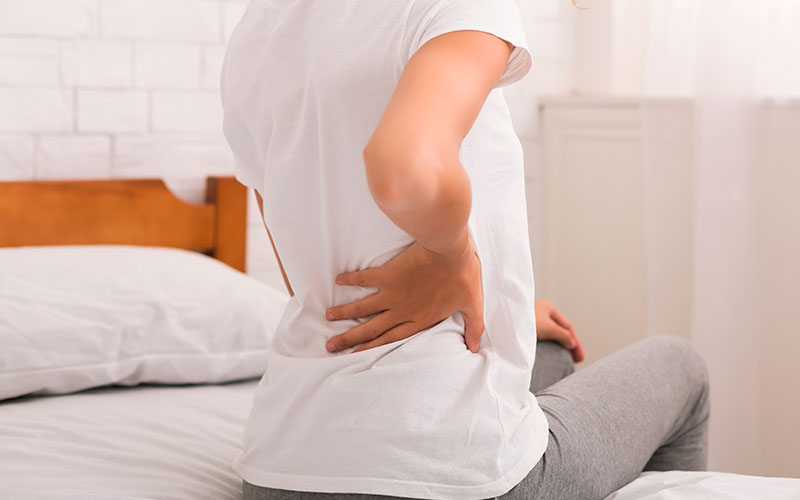Herniated Disc
Your spinal column contains a number of discs that work as cushioning between the vertebrae, minimizing the impact of your movements on the spinal column. Each disc has a donut shape with a soft center (the nucleus pulposus). When this central space is ruptured, this is called disc herniation (also commonly referred to as a “slipped disc”).

Disc degeneration as a result of injury or due to the aging process can rupture the central space and through the outer ring of the donut (the annulus fibrosis). Herniated discs most commonly occur between the fourth and fifteen lumbar vertebrae, located in the lower back because this area constantly absorbs the impact of upper body weight, especially when sitting or standing.
The lower back is also regularly called into action to support other body movements, including twisting and hinging movements such as bending, lifting and rotating from side to side.
What causes a herniated disc?
The most common cause of a herniated disc is age-related wear and tear (disc degeneration) because, as we get older, discs become less flexible, leaving them vulnerable to tearing or ruptures. The rupture may occur as a result of heavy lifting or even a fall. Your risk of experiencing a herniated disc increases if you are overweight, have a physically demanding job, are genetically predisposed, male, lead a sedentary life, or if you are a smoker.
What are the symptoms?
Most people who have a herniated disc will experience lower back pain. In many cases, the pain will last a few days before improving. Other common symptoms include:
- Sciatica, a sharp shooting pain that originates in the buttocks and radiates down the leg caused by pressure on the spinal nerve. The pain is generally worse when standing up and can be relieved by lying down.
- Numbness, weakness, or tingling in the leg and foot.
- Loss of bladder or bowel control (this may be a sign of a more serious spinal condition).
- Stiff neck, muscle spasms, and shooting arm pain, if the herniation occurs in the cervical spine.
When should you see a doctor?
If you have back or neck pain radiating down your arm or leg, if you lose control of your bladder or bowel movements, or if you experience numbness, tingling, or weakness, you should immediately make an appointment with a doctor who specializes in back conditions.
Your doctor will be able to determine the cause of the pain and prescribe the best course of treatment after conducting a physical exam and taking a full medical history. The physical exam may include neurological checks for muscle weakness and loss of sensation as well as the straight leg raise (SLR) test to check for disc herniation. They may also need to do x-rays, MRIs, or a CT scan.
In most cases, the condition will improve over time, and non-surgical interventions include rest, anti-inflammatory medication, physical therapy, and epidural steroid injections. If surgery is needed, micro-discectomy is the most common procedure for treating a single herniated disc.
Make an appointment
A herniated disc can cause extreme pain and, if left untreated, can lead to other complications. At Northwest Surgical Specialists, we offer expert diagnosis and treatment based on years of experience in treating spinal conditions. To get in touch, please give us a call on 847-885-9525 or request an appointment through the website.